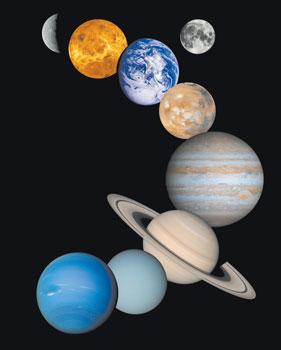 Right now, you are probably thinking about the time Galileo got put on trial by the Inquisition. How do I know that? Because you just read the first sentence in this column. If you are one of the other 7.6 billion people in the world who didn’t read that sentence, please proceed to the crossword puzzle. If you are still here, let’s stroll around 17th-century canon law as it was inflicted on Galileo.
Right now, you are probably thinking about the time Galileo got put on trial by the Inquisition. How do I know that? Because you just read the first sentence in this column. If you are one of the other 7.6 billion people in the world who didn’t read that sentence, please proceed to the crossword puzzle. If you are still here, let’s stroll around 17th-century canon law as it was inflicted on Galileo.
It turns out sometimes the prevailing conventional wisdom ain’t so wise. Like Sportin’ Life once sang in “Porgy & Bess,” “The things that you’re liable/ To read in the Bible/ They ain’t necessarily so.” Case in point, ponder the troubles of our old pal Galileo Galilei. Galileo was one of those 17th-century celebrities who were so famous they were known by one name like Cher or O.J. Galileo managed to get tangled up with the Inquisition because he pushed a theory that the Catholic Church didn’t like. Think back into the dusty recesses of your mind about the Inquisition. Go ahead. I have a minute. Take your time. There. Remember it was always best to keep a low profile around the Inquisition as they had ways of making you talk.
So, on we go into the Way Back Machine with Mr. Peabody and his boy Sherman. We are in the year 1633 when Galileo fell into the tender mercies of the Inquisition. In his day, Galileo was a celebrity astronomer like Stephen Hawking or Neil deGrasse Tyson. When Galileo talked, people listened. Conventional 17thcentury scientific wisdom was based on Ptolemy’s theory that the Earth was the center of the universe and that the sun and planets all rotated around the Earth. Ptolemy came up with this theory about 150 A.D. For almost 1,500 years, astronomers believed the Earth was the Beyoncé of the Universe, the center of everything. Ptolemy’s theory also conveniently matched the Bible’s interpretation that the Earth was the center of the universe.
The first major break from Ptolemy’s universe came in 1543 when another hotshot 17th-century astronomer named Copernicus published his theory that the Earth rotated around the sun instead of the other way. Copernicus’ theory was not well received. The proverbial celestial poo hit the fan, and his theory fell into disrepute. Everything chugged along smoothly in the Ptolemy universe until Galileo invented the telescope in 1609. Then it was a bad moon rising for Galileo. Looking through his telescope, he saw planets rotating in a manner that convinced him Copernicus was right.
It turns out new scientific discoveries that challenge conventional scientific and religious beliefs are not always welcomed with open arms – as Galileo was to find out. Being a good scientist and not having access to the internet, Galileo started printing all manner of written materials and books about his theory that the Earth rotated around the sun. Accusations of heresy were flung against Galileo. He found himself summoned by Pope Urban VIII to come to Rome to answer for his sins of believing and saying that what he was seeing was true. Like the Red Queen said in “Alice in Wonderland,” “Sentence first – verdict afterward!” The Inquisition decided he was guilty and then had his trial.
As the Inquisition had some serious and painful penalties including prison and torture that it could impose, Galileo took a plea bargain. He confessed that he had been in error in saying that the Earth rotated around the sun. “Oops, my bad!” saithe The G Man. He was sentenced to prison but allowed to serve house arrest on condition that he would never breathe another word about the Earth rotating around the sun.
Rumor has it that on his way out of the Inquisition’s courtroom, Galileo muttered under his breath, “And yet it moves” referring to the Earth rotating around the sun. Fortunately, the Inquisitors didn’t hear him say that or he might have recanted again while being stretched on the rack.
Galileo’s story has a happy if somewhat delayed ending. Only 359 years after Galileo’s trial, Pope John Paul II declared in 1992 that Galileo was right about the rotation of the Earth. Of course, there is no parallel between Galileo’s story and certain politicians’ resistance to accepting climate change as scientific fact. To quote Mark Twain’s preface to “Huckleberry Finn:” “Persons attempting to find a motive in this narrative will be prosecuted; persons attempting to find a moral in it will be banished; persons attempting to find a plot in it will be shot.”
So, what have we learned about astronomy? Probably not much. Oscar Wilde once said, “We are all in the gutter, but some of us are looking at the stars.” Look at the stars or look in the gutter. The choice is yours. My personal advice to you is to never to take advice.

 How to resolve AdBlock issue?
How to resolve AdBlock issue? 








